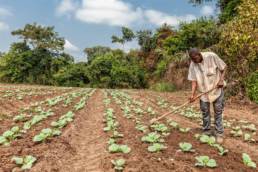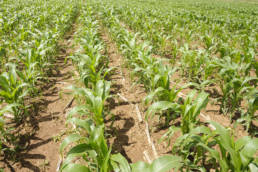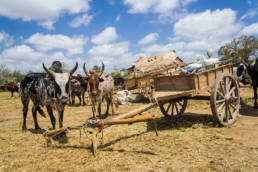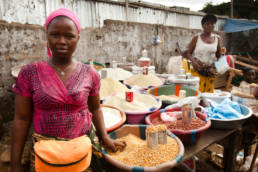ASPI
Summary
Narrowing the knowledge gap in Africa is the main concern of understanding the curious case of Africa’s development. Critical to the continental development agenda is a sustainability progress index. This call for financial assistance rests on the development and maintenance of this tool to gauge sustainable development in Africa and interpret findings into easy-to-understand language by reorienting knowledge production and dissemination patterns using innovative means of communication and exchange. The ASPI index will remain relevant as periodic collection of findings and analyses of sustainability performance will be released publicly.
Using state of the art mobile technology, data & findings can be accessed, downloaded and interpreted using a web-based applications. ASPI will make the application cross-platform, meaning computer users will have similar access as an Android-based platform user. This effectively enables an extensive infrastructure for monitoring sustainable development in Africa. Such ambition is particularly relevant where a growing proportion of Africans access information electronically.
Objectives
ASPI aims to assist governments reach their national and supranational goals in sustainability through in a sustainable, inclusive and efficient manner. The work will focus on infrastructure, governance, agriculture, natural resource protection and management, food security, human development and social welfare.
The general objectives are as follows:
- Enhance regional knowledge and regional cooperation through compilation and sharing of knowledge
- Develop a progress metric to assess the sustainability performance in the continent, with the creation of “sustainability report cards” to capture the state of sustainable development vis-a-vis government policies
- Improve capacity building, awareness, and inter-agency coordination at the national and regional level for mainstreaming sustainability solutions into development strategies.
- Understand data on sustainability with added comprehensiveness by combining big data with official government data
The Africa Sustainability Progress Initiative (ASPI) integrates a goal-oriented, adaptable framework for measuring sustainability in four distinct approaches.

First, it will create progress indicator(s) to guide the various targets of the 17 United Nations Sustainable Development Goals, with attention on economic development, natural resource protection, government transparence and social welfare.

Second, it will organize and maintain a Knowledge Hub: a repository to house a comprehensive data ecosystem of development indicators and big data, where available.

Third, an Online Knowledge Platform will be built via a state of the art web application to feed data from the Knowledge Hub and publicly accessible sources.

Fourth, a Progress Report will assess the overall performance of policy-driven government action as well as reporting on independent, private sector efforts in multidimensional sustainability themes.

Fifth, ASPI will work with local and regional data centres to obtain its own data and engage external stakeholders to improve methodologies. As part of the methodological framework, the research team will develop a formula integrating a quantifiable function of analytical, descriptive and predictive insights of the thematic indicators.
SDG’s
What Does “Leave No One Behind” Truly Mean?
With 17 SDGs along with 169 Targets, how does the principle of leaving no one behind distinguishes itself as a clear-cut objective?
SDG’s
The Financing Gap
Where does Africa stand in achieving the SDGs but most importantly what are the financing gaps the continent faces in achieving these goals?



















